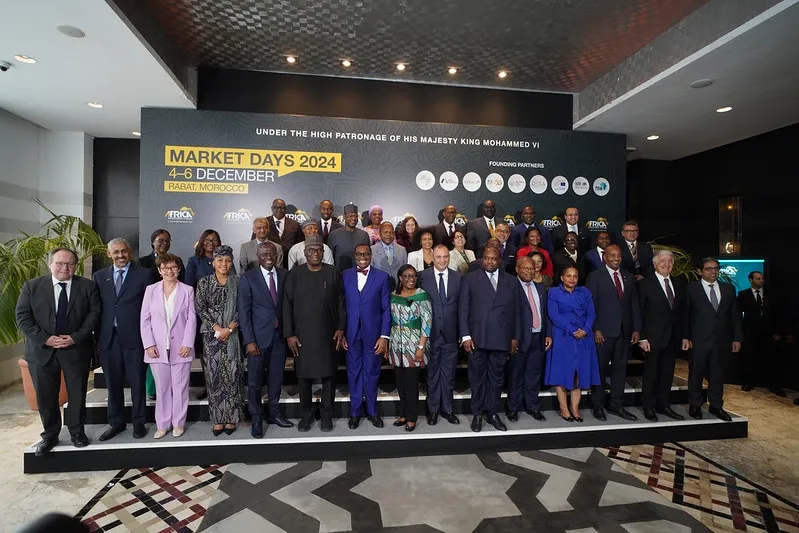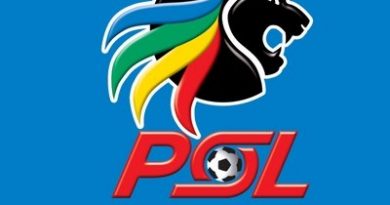Global Investors Pour $29.5 Billion into Africa Investment Forum 2024
This article is part of a collaborative series with the African Development Bank, celebrating its sixtieth anniversary.
Please explore our dedicated portal to learn about the Bank’s history and its initiatives across the continent.
The Africa Investment Forum, which took place in Rabat, Morocco from December 4th to 6th this year, underscored the continent’s vast investment opportunities. The event, themed “Leveraging Innovative Partnerships for Scale,” witnessed the highest attendance since its inception in 2018, drawing 1,707 investors representing 200 institutions from 83 countries.
During the opening remarks, Dr. Akinwumi Adesina, president and chairman of the board of directors of the African Development Bank Group, issued a compelling appeal for increased investments in Africa. He urged investors to “trust the data” and not be misled by negative perceptions surrounding the continent. He highlighted that Africa is projected to account for a quarter of the world’s population by 2050, significantly increasing the demand for various goods and services.
Vibrant Forum Participation Showcases Africa’s Distinct Investment Trajectory
“The demand for housing is anticipated to soar, presenting an investment opportunity worth up to $1.4 trillion. By 2030, Africa’s food and agriculture market is expected to reach $1 trillion. Additionally, the need for infrastructure offers an annual investment potential of at least $170 billion across sectors like energy, transportation, water and sanitation, and more,” he emphasized, adding that “Africa offers a unique investment landscape that must not be overlooked.”
Dr. Adesina, who was honored with the “African of the Decade Award” at the forum’s conclusion, noted that the unprecedented attendance reflects the continent’s abundant opportunities for value creation. This year’s forum attracted delegations from India, China, and Japan, highlighting its growing influence and the increasing interest in African investments. A 2024 survey by the Africa Private Equity Capital Association revealed that 85% of limited partners aim to boost their private capital allocations to Africa within two years, with 52% viewing Africa as more appealing compared to other emerging markets within five years. With a significant portion of key green transition minerals, Africa is also poised to enhance its electric vehicle production value, which is expected to rise from $7 trillion in 2030 to $59 trillion by 2050.
Morocco’s Finance Minister Calls for Structural Changes
In her welcoming address, Morocco’s finance minister, Nadia Fettah Alaoui, commended the founding partners of the Africa Investment Forum for their collaborative efforts to enhance investment in Africa. “Now more than ever, development partners must strengthen strategic collaborations and operate more cohesively for greater impact in addressing the growing challenges faced by African nations,” she asserted.
While acknowledging the strides taken to attract private investment, Alaoui pointed out that additional efforts are necessary to bridge the financing gap for the Sustainable Development Goals. She urged development partners to intensify support for structural reforms being implemented by African governments, fostering private initiatives and well-crafted, financially sustainable projects. “Such reforms should include measures to bolster macroeconomic fundamentals and improve the business climate, ultimately reshaping perceptions of risk and dismantling longstanding biases against Africa, enabling the full realization of private stakeholders’ financial capabilities,” she stressed. Alaoui also called on global partners to collaborate towards creating a more effective worldwide financial safety net for prompt and automatic liquidity access, which would help mitigate investment risk premiums.
New Investments Reach $29.5 Billion, Major Agreements Formed
Over the past editions, the Africa Investment Forum has attracted $180 billion in investment interest and facilitated transactions amounting to $30 billion, establishing itself as the premier event for channeling investments into the continent. After three days of focused discussions, this year’s market days at the AIF generated $29.5 billion in new investor commitments across a variety of sectors, including transportation, energy, agribusiness, manufacturing, mining, pharmaceuticals, private equity, tourism, urban infrastructure, and water management. This resulted from a total of $40.9 billion in deals presented to investors in 41 specialized boardrooms established during the forum, with 34 investment-ready opportunities and 7 at the early-stage level, illustrating a spectrum of possibilities for prospective investors.
Several significant agreements were finalized during the AIF. Seedstars Africa Ventures I, a venture capital fund focused on early-stage investments in scalable African startups, announced its first closing at $42 million, backed by the African Development Bank, EIB Global (part of the EU’s ACP Trust Fund and Boost Africa initiative), and other international investors. Furthermore, the African Development Bank and Bank of Africa SA entered into a €50 million risk-sharing agreement aimed at boosting private-sector financing and enhancing African trade, targeting an additional €200 million in trade support for SMEs across over 20 African nations.
Another agreement was established between the African Development Bank Group, the Development Bank of Southern Africa (DBSA), and institutional investors to evaluate a multi-originator synthetic securitization transaction designed to attract private capital and mitigate the risks faced by African development finance institutions. This initiative builds on the successful $1 billion Room to Run Programme and aims to create a platform to amplify lending capabilities for significant projects across climate finance, infrastructure, and financial intermediation.
$6 Billion Mattei Plan Aims to Develop an Energy Hub
At the AIF, a partnership was formalized between SACE, an Italian insurance-financial group, and the African Development Bank Group to provide credit protection and incentivize investments in Africa under the “Mattei Plan.” This agreement is part of a larger initiative by the Italian Government in conjunction with the Bank, aimed at supporting high-impact projects across sectors such as infrastructure,
agribusiness, healthcare, energy, and education. The $6 billion Mattei Plan, introduced earlier by Italian Prime Minister Georgia Meloni, is focused on strengthening economic ties and establishing an energy hub, prioritizing countries including Algeria, Egypt, Ethiopia, and Morocco. SACE’s financial offerings, including the Push Strategy, will facilitate connections between African buyers and Italian SMEs, enhancing business relationships between Italy and Africa.
The AIF is an initiative supported by 9 Development Finance Institutions, including the AfDB Group, Africa50, Afreximbank, IsDB, DBSA, EIB, TDB, BADEA, and AFC. This year, it proudly welcomed the Arab Bank for Economic Development in Africa to its roster of founders, further expanding its reach and impact.




